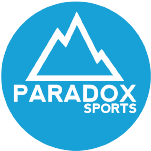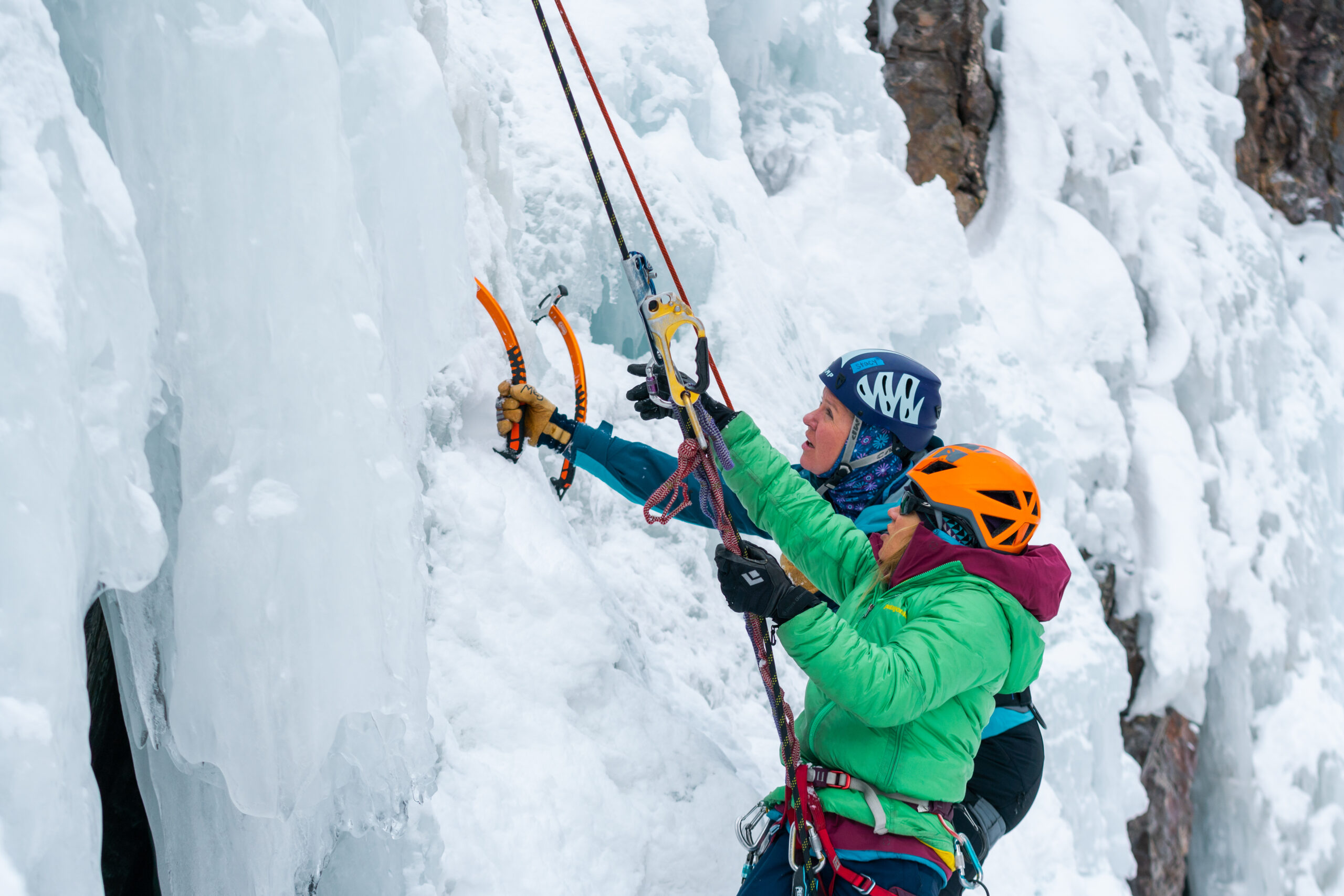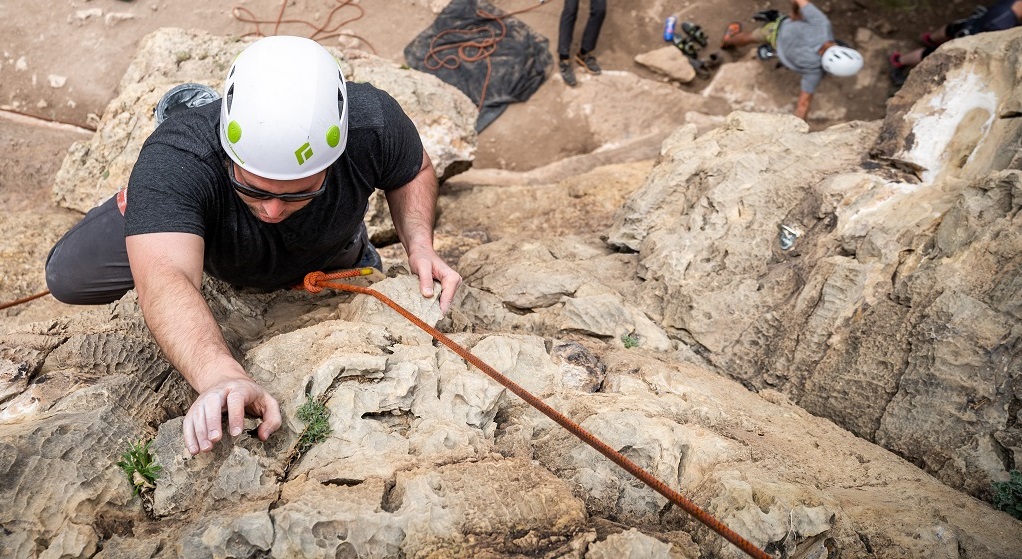GENERAL PROGRAM FAQs
Paradox Sports focuses on adaptive climbing opportunities for people with physical disabilities, including but not limited to people with amputation or limb difference, blindness, hearing impairment, spinal cord injuries, neurological issues, TBI and PTSD. Please see our full Essential Eligibility Criteria here.
As a non-profit, we need to cover our cost to operate and this includes both participants and climbing assistants pitching in to cover trips costs. Often the lines between “participant” and “assistant” are indistinguishable as we enjoy a weekend of climbing as a community. Registration fees for everyone cover food, lodging, equipment, professional guides, extra programming, insurance, and other overhead for planning the trip. It takes a lot to make these programs succeed – we thank you for your contribution!
Although our main group of individuals on programs is adults, we have had a handful of minors join us on rock and ice climbing trips in the past! As a minor, we require a guardian join them and register as a volunteer.
Yes and we hope you can share these experiences with them! We ask that they register as a climbing assistant for the trip and help cover the costs of lodging, meals, logistics, guides, etc. and that they are eager and willing to be an active part of the community for the weekend.
Yes! Our Program Leaders and Instructors are professionally trained and certified by the American Mountain Guides Association (AMGA), often volunteering their time and expertise to help us expand adaptive climbing opportunities. They work for Paradox on a contract basis, taking time away from their full-time positions as guides with other companies.
With over 10 years of experience working with people with disabilities, the one thing we know for sure is that each disability is unique! You are the expert on you, and our motto has always been that we will work together to communicate and understand your needs. Each program leader, guide, and volunteer brings their own unique background and expertise as well – from physical therapy and medical backgrounds, to over a decade of adaptive climbing experience.
Yes! We encourage participants to bring their own gear if you have it so you can get familiar with your own equipment, however we do provide gear to climbers who need it. You will be able to list your gear needs during registration. Required gear for any program: helmet, harness, climbing shoes (or ice boots and crampons for ice climbing).
Accessibility is a focus for choosing our program areas. However, each program area presents different terrain and unique challenges depending on the adaptive athlete. We strive to provide assistance to all our adaptive athletes in all of our program areas, however, we also recognize the spectrum of adaptive athletes and recognize not all our climbing areas may be accessible to all athletes.
It is always our goal to empower our participants! Our certified guides and qualified climbing assistants are eager to answer questions and help you grow as a climber, within a safe environment. We also offer specific skill building courses for adaptive athletes that want to take their climbing to the next level. We are happy to answer any questions you have and teach some technical skills. We do not provide lead climbing opportunities on Paradox trips (unless backed up on toprope).
Paradox Sports has a thorough Emergency Response System and Emergency Response Team. At the beginning of each program, we will work with the climbing assistants and climbers to communicate risks and what to do in case of an emergency. The majority of guide, program leads, and Paradox staff also are Wilderness First Responder certified and many volunteers serve on Search and Rescue teams. You are in good hands!
Depending on what trip you are participating on, the packing list varies. You will be sent a full packing list prior to the event. Please see our suggested packing lists at the bottom of the Legacy Trips page.
Paradox Sports does not provide transportation directly, however during registration volunteers and participants are asked about their travel plans/needs. We are happy to connect people interested in carpooling that are coming from the same areas!
If you are signing up for rock or ice climbing, you likely already have a sense of adventure! Sometimes the path to the crag is not ADA accessible, or the lodging options are limited in these remote areas, but we work as a community to figure it out. After you register for your climbing trip, we will review your application and be in touch to discuss the specific logistics around your trip.
On each Paradox trip there is a full spectrum of experience levels. If you are an experienced climber, we can promise you an engaging community, coaching by AMGA certified guides, a diversity of routes and a great overall trip experience. However, we do not provide lead-climbing opportunities on Paradox Sports programs.
We try to cover all common needs such as vegetarianism, dairy-free, gluten-free, and allergies. If you are severely allergic to foods, require specific or more frequent snacks, or are worried about cross-contamination, bringing your own snacks is always an option as well. Depending on the trip, some meals are cooked as a group and others are provided by local restaurants. If you have allergies, please list them in your registration and we will work with you to meet your needs.
Yes we can definitely take care of that for you!
Participants on our trips have historically administered their own medications. Paradox Sports staff is not QMAP certified and will not administer medication to participants. If someone is a minor or requires medical assistance, they have often had someone qualified join them on the trip.
We understand that injuries happen, work gets in the way, or other issues arise that mean you cannot join the trip. You can see the full cancellation policy at the bottom of the Legacy Trips page.
Unfortunately, due to the nature of our programs, Paradox Sports has a no pets policy. If you have a service animal that you plan to bring with you on a program, please be sure to let us know in advance and familiarize yourself with this Service Animal Agreement. We will require a signed copy of this agreement from anyone bringing a service dog with them on the trip. If you bring any animals on a program that are not service animals, you may be asked to leave without reimbursement.
*Please be advised that some of our trips are not hospitable for service animals. Our Ice Climbing trips include risks such as extreme cold, falling ice, crampons, potential expososed rivers, and more. Our alpine trips include similar risks such as extreme weather, falling and loose rocks, impassable areas for an animal, etc. If a staff member or guide encourages you to leave your dog at home, it is out of safety concern for your animal due to the dangers listed above.
ADAPTIVE CLIMBING INITIATIVE
COURSE FAQs
Yes – courses are held all over the United States. Open Enrollment programs allow interested individuals and small groups to attend an Adaptive Climbing Initiative course at a host facility. These opportunities are perfect for guides, students, climbing facilitators, recreational climbers, and anyone interested in adaptive climbing.
Yes – any climbing area in the United States can host an adaptive climbing course. Our schedule fills up fast though – we recommend inquiring at least six months to one year before the date you would like to host a course.
Typically the ACI is an 8 hour education day, followed by a 3 hour community climbing session the next morning. We also host single day educational courses.
There is a basic equipment list that we have found to work for most programs listed on our Adaptive Climbing Initiative page. Exact quantities for each type of equipment should be customized for your climbing facility and participants. This equipment can be purchased from Paradox Sports or your program can provide it. Standard gym equipment such as harnesses, ATC belay devices, dynamic ropes, and helmets are not included in this list, but are necessary for our courses.
1. An area to hold the course for 12-18 people. A private classroom setting or a “birthday party” room will work best – but a quieter area of the gym works too. We would also utilize a projector if one is available.
2. Access to a beginner climbing wall.
3. Help spread the word by recruiting facilitators who would be interested in adaptive climbing to attend the course. Potential facilitators typically include gym staff, gym members, employees at local nonprofits, therapists at rehab centers/hospitals, or people affiliated with other local adaptive sport programs.
4. Help recruiting people with disabilities to climb on day two (community day).
If we invite others to our gym to take the ACI Course, what would they be learning to do in our gym?
The course offers general guidelines on working with adaptive climbers – the things that are helpful for people with all kinds of disabilities. We will go over the major categories of physical disabilities: amputations, paralysis and other common neurological disorders, visual and hearing impairment, and brain injuries. Anybody new to climbing will have many questions, and adding a disability to the mix compounds that sense of “How do I get started.” The first day of the course will help them answer this question and become familiar with how to use adaptive climbing equipment.
We will also cover:
- How To Improve Gym Accessibility
- Screening Participants
- Climbing Techniques
- Assisted Belay
- Mechanical Assistance
- Side Climbing
- Adaptive Tools: Climbing feet and other prosthetic systems
The expert anecdotes and lessons provided, as well as the systems and resources, serve adaptive athletes, climbing wall instructors, outdoor guides and therapists, and well-being advocates of all types. In order to prepare for the clinic, non-employees should be belay certified. But in general we say: anyone who climbs can learn new skills and help empower others to climb from the weekend-long intensive course.
People that become certified will be able to facilitate climbing for all people with adaptive needs and can launch climbing clubs that help people transition from being climbers with disabilities to simply being “climbers.” Put another way, we want to help people make climbing a regular part of their lifestyle. We encourage those participating in the clinic to get others involved and teach them how to use the adaptive equipment. We also published an adaptive climbing manual that we will leave with participants – which can be used as a personal resource or for sharing info with others who did not attend the clinic but would still like to help facilitate adaptive climbing.
We provide the following to help with outreach:
1. We will provide a front window or front desk sticker/signage to communicate you are part of the Adaptive Climbing Initiative.
2. We will provide digital artwork and copy you may use on your website to communicate you are part of the Adaptive Climbing Initiative.
3. The Adaptive Climbing Initiative will be promoted by The North Face. Gyms that are part of the Adaptive Climbing Initiative will appear on The North Face’s website at thenorthface.com/paradoxsports. Opportunities to appear on The North Face’s social media channel – including Facebook and Instagram – may also be available.
4. Gyms participating in the Adaptive Climbing Initiative will appear on the Paradox Sports website and we will refer adaptive climbers and potential volunteers to your facility. Participating facilities will also appear on our interactive location map with your website and contact information.
5. We are working with a leading public relations firm and are continuously looking for local outreach opportunities in your area. We hope that local media coverage in your region will help communicate your efforts in adaptive climbing.
We believe our course is a launching point to creating an adaptive climbing club. Our goal is to get an interested group of climbing facilitators the equipment and confidence to move forward with forming an adaptive climbing club. We are currently working to put together more thorough resources for gyms who have hosted an ACI Course and want to launch an ongoing program. At this time, if you are looking for additional support, please contact info@paradoxsports.org



